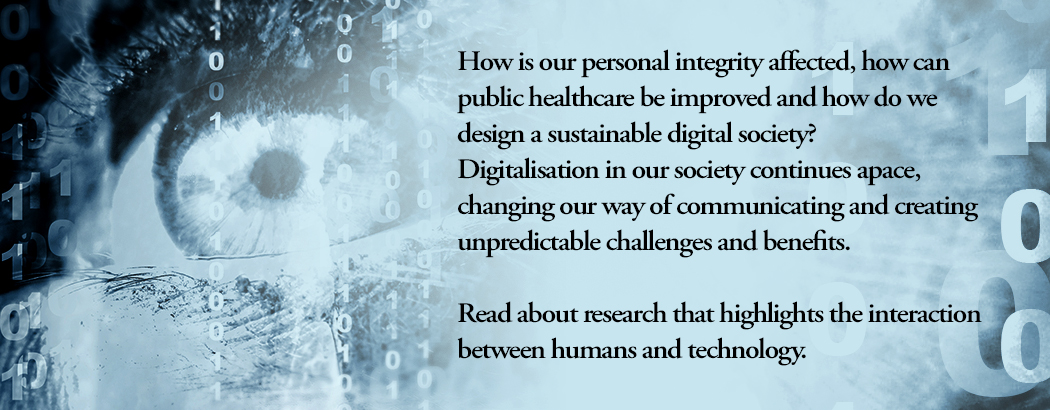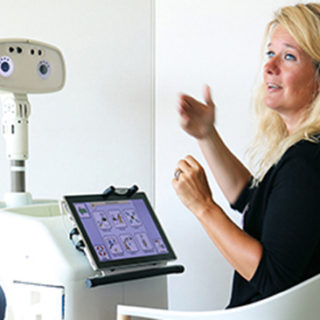- Start
- Themes
- The amazing brain
- Sustainable future
- The digital society
- Is the world becoming a better place?
- Smart society
- Plastic
- Migrations
- Bacteria – friend or foe
- Work for all?
- The inherent power of light
- Africa
- To the last drop
- Our three-dimensional world
- Close to death
- Inspired by nature
- Nano – small things matter
- Epigenetics
- To believe
- Buzzy bees at your service
- Micro-RNA from junk to hotspots
- Categories
- About the magazine
- Svenska
Theme: The digital society
Algorithms are the decision-makers of the future
Our internet presence generates a large amount of information. What happens to personal integrity in the wake of the digitalisation of society? How conscious are we that much of what we do on smartphones and on the internet is registered by major companies like Apple and Google who then sell...
How scary insects become helpful robots
The only limit to what robots can do is our imagination. But in order to make it real, we need knowledge and inspiration from many different areas. What do we need to know, for instance, in order to design a smart robot that can help in emergencies or perform heavy...
Digital Technology at work is a double-edged sword
How is digital technology affecting our work situation? Is digital technology helping or hindering our work performance? Could data collected about work tasks pave the way for a return to an older style of managerial practice? These are some of the questions discussed by researchers involved in the research theme...
Digital aids in school can be both help and hindrance
The majority of today’s digital teaching tools do not measure up. They have great potential but better coordination and innovative thinking are required, with researchers, teachers and pupils collaborating in their development. Moreover, support for control and review of the range on offer needs to be a national responsibility, according...
Paths towards a sustainable internet
Chronicle: By discussing how we can achieve more sustainable solutions for our digital networks, IT researcher Anders J Johansson puts his finger on an important issue. How can we design our gadgets so that they can be repaired or used in new ways? The wear-and-tear mentality of today needs to...
Robots are developed based on an erroneous view of elderly user
Our increasingly aging population makes it necessary to find new ways to work with home care, and robotics can be one of them, argues Susanne Frennert, who recently defended her thesis in rehabilitation engineering at the Department of Design Sciences at the Lund University Faculty of Engineering (LTH). She has...
Recycling as important as collection to reduce e-waste
Up to 41 million tonnes of e-waste from goods such as computers and mobile phones are generated by the electronics industry every year, according to the United Nations Environment Programme. 60 – 90 % of this e-waste is illegally traded or dumped – accounting for a large portion of the...
GIS – a pre-requisite in digitalised society
A smart society is starting to emerge around us with new interconnecting requirements for our use of resources not to compromise sustainability in ecosystems. Nowadays, Geographical Information Systems (GIS) are an obvious tool within widely diverging fields, such as urban planning, prospecting, research, mapping, etc. Historically, GIS has been associated...
Figuring out the Chinese internet puzzle
China is an authoritarian state exercising strict control and censorship. At the same time, the country is quickly adapting to the digital age, and today has the world’s highest number of internet users and the largest mobile market in absolute numbers. This puzzle sparked the interest of a group of...












